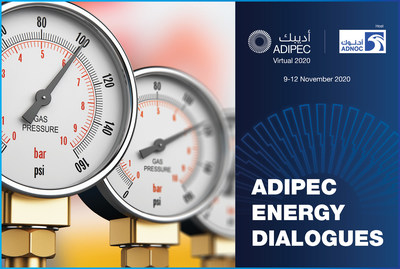
ADIPEC: Natural Gas Projects in Africa are Key to Global Energy Transition, reducing emmissions and Powering Industrialisation
Natural gas is an integral part of the global energy story accounting for 25% of the global energy that is consumed. With a total proven natural gas resource estimated to be about 600 trillion CFT (ft3), the opportunities for natural gas in Africa are enormous.
Participating in the latest online ADIPEC Energy Dialogue, Leye Falade, who is the General Manager of production at Nigeria LNG (NLNG), a major stakeholder in the global LNG business, said natural gas projects in Africa are key to the energy transition and economic development in the region and can be used to power industrialisation while reducing the emissions released into the atmosphere.
"While the quick switch to renewable and other cleaner energy sources are desirable, current data indicate that the transition cannot be achieved on the global scale as quickly as many parties are pushing for," Falade said. "Therefore, we have to find a way to bridge the gap between where we are today and where we desire to be. This is the role that gas is expected to play in the medium to long term."
Falade highlighted that gas is cheaper, cleaner, and more available than the traditional oil forms, and it can support realistic transitioning to the new energy world order.
Speaking about NLNG's latest expansion programme – the Train-7 Project - which will increase the company's production capacity by 35% from the current 22 Million Tonnes Per Annum (mtpa) to 30mtpa, Falade pressed upon the importance of the project to all stakeholders as it is expected to increase Foreign Direct Investment (FDI) inflow into Nigeria by over $7 billion over the next five years.
With the addition of Train-7 and the increase in production capacity, NLNG will stand a chance to maintain its position as the 6th major supplier of LNG, globally. The project is anticipated to create more than 12,000 new jobs directly, and more than 40,000 indirectly, particularly during the construction stage.
Falade believes that while COVID-19 has the potential to limit some of the project activities that can be carried out for a period of time; however, he does not expect this to affect the overall cost of the project significantly. He also said that the Engineering, Procurement, and Construction (EPC) contract for Train-7 is progressing well under the approved COVID-19 restricted contractor's decision strategy and various stakeholder engagements have been initiated to ensure that any possible unforeseen risks are mitigated.
Meanwhile, when it comes to the volatility in global oil and gas prices, Falade believes that with lower oil prices, there are also opportunities. "As 2020 has become a year of survival, and companies started operating in crisis mode, this has enabled us to have more control of our costs and make prudent calls to keep the business afloat," he explained.
"Ultimately, no-one in the industry can run away from the impact of COVID-19. Now is the time for companies to showcase whether they have the ability to stay in the game during the 'lower-for-longer' cycle in the industry by remaining profitable while not compromising their ability for sustained existence," he added.
Addressing the opportunities for international industry stakeholders in the Nigerian gas market, Falade said that they now have the opportunity to participate in the areas of service and manufacturing by partnering with local Nigerian companies and service providers. They can also support Nigerian companies wanting to utilise LNG as an alternative clean energy source, as well as financing the needs of the partner company when it is required.
The ADIPEC Energy Dialogue is a series of weekly online thought leadership events created by DMG events, organisers of the annual Abu Dhabi International Exhibition and Conference. Featuring key stakeholders and decision-makers in the oil and gas industry, the dialogues focus on how the industry is evolving and transforming in response to the rapidly changing energy market.
With this year's in-person ADIPEC exhibition and conference postponed to November 2021, the ADIPEC Energy Dialogue, along with insightful webinars, podcasts, and online panels continue to connect the oil and gas industry, with the challenges and opportunities shaping energy markets in the run-up to and following, a planned four-day live-stream virtual ADIPEC conference taking place from November 9-12.
An industry first-of-its-kind, the online exhibition, conferences and awards ceremony will bring together energy leaders, ministers, global oil and gas CEOs as well as the engineering faculty to assess the collective measures the industry needs to put in place to fast-track recovery, post COVID-19.



























